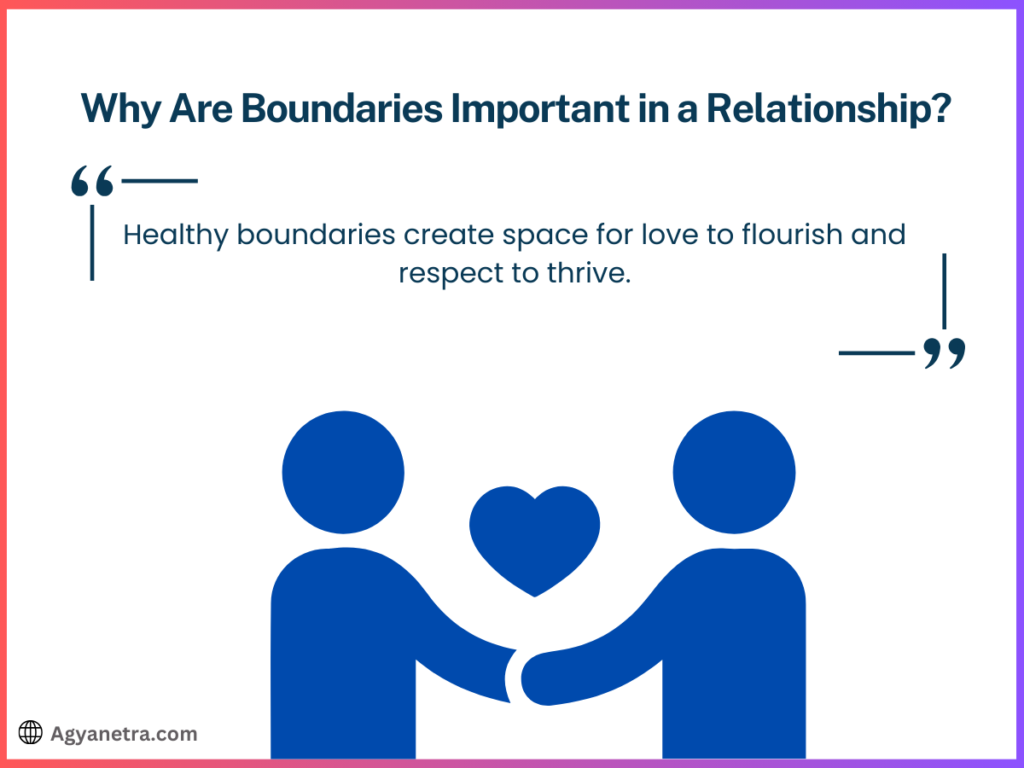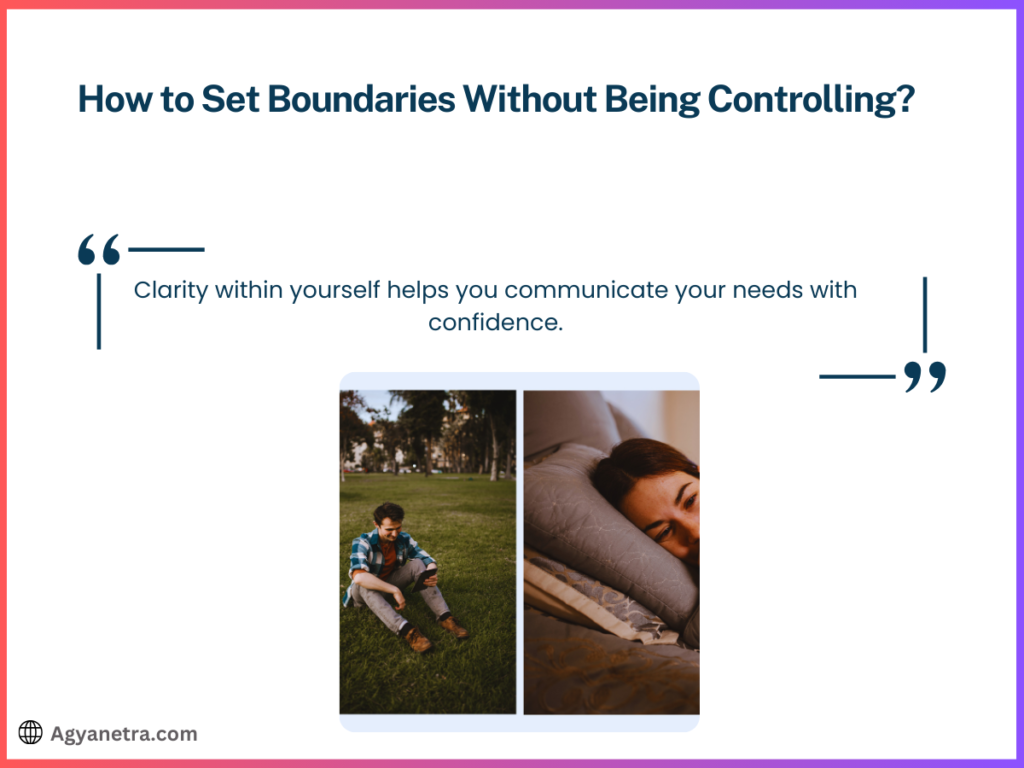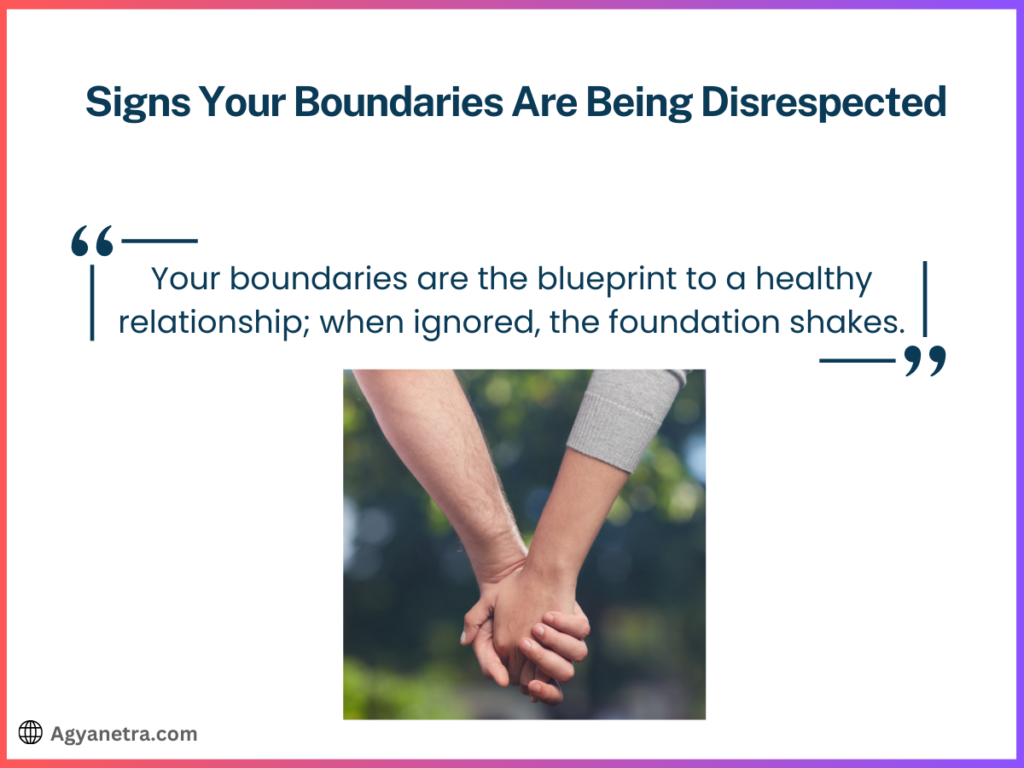How to Set Boundaries in a Relationship Without Being Controlling? Setting boundaries in a relationship is essential for maintaining mutual respect, emotional security, and personal well-being. But how do you do it without coming across as demanding or controlling?
It’s a delicate balance—one that many struggle with. The good news is that boundaries aren’t about restrictions; they’re about creating a healthy space where both partners feel valued, heard, and free to be themselves.
In this guide, you’ll discover why boundaries matter, how to communicate them effectively, and how to ensure they strengthen your relationship rather than push your partner away.
If you’ve ever felt guilty for setting limits or worried that boundaries might create distance, keep reading.
You’ll learn practical, respectful ways to establish boundaries that foster deeper trust, connection, and harmony in your relationship.
How to Set Boundaries in a Relationship Without Being Controlling
Setting boundaries in a relationship is crucial for creating a healthy balance between emotional closeness and personal space.

But many people worry that setting limits might come across as demanding or controlling.
The truth is, boundaries aren’t about restricting your partner—they are about protecting your emotional well-being while respecting theirs.
Healthy boundaries help prevent misunderstandings, resentment, and emotional exhaustion.
They ensure both partners feel valued, heard, and free to be themselves. If you’ve ever struggled with saying “no” or felt guilty for needing personal space, this guide will help you navigate setting boundaries in a relationship without being controlling.
More Posts Like This
- How Do You Know If You Are Dating the Right Guy
- Difference Between Loving Someone and Being in Love
- Signs of Romantic Obsession and How It Differs From True Love
- The Power of Surrender in Love and Relationships
Why Are Boundaries Important in a Relationship?
Boundaries act as a roadmap for a healthy relationship. They define what is acceptable and what isn’t, making communication easier and reducing conflicts.
Without them, relationships can become overwhelming, leading to codependency, frustration, and emotional strain.
Some of the key benefits of setting boundaries include:
- Building Mutual Respect – Boundaries create an understanding of each partner’s needs and values.
- Preventing Resentment – When one person constantly sacrifices their needs, it leads to frustration.
- Encouraging Individual Growth – Maintaining personal interests and space strengthens the relationship.
- Improving Communication – Clearly stating your limits fosters open and honest conversations.
- Enhancing Emotional Security – Knowing that your feelings and needs are acknowledged builds trust.
By setting healthy boundaries, you establish a strong foundation for a fulfilling relationship without feeling controlled or stifled.
Types of Boundaries in a Relationship
Before setting boundaries, it’s important to understand the different types that exist in relationships. Here’s how they play a role:
1. Emotional Boundaries
These protect your emotional well-being by defining how you want to be treated emotionally. It includes knowing when to support your partner and when to step back.
Example: If your partner vents about work every day but never asks about your day, it’s okay to set a boundary:
“I want to be there for you, but I also need us to share our day equally.”
2. Physical Boundaries
These involve personal space, affection, and physical touch. Different people have different comfort levels, so discussing this is key.
Example: Some people love hugs and holding hands in public, while others don’t. If your partner enjoys constant physical touch but you prefer occasional affection, express it kindly:
“I love being close to you, but sometimes I need personal space to feel comfortable.”
3. Time Boundaries
Balancing personal time, work, family, and the relationship is crucial. Setting time boundaries prevents burnout and ensures both partners have space to recharge.
Example: If you need alone time after work but your partner wants to spend time together immediately, say:
“I love spending time with you, but I need 30 minutes to unwind before we hang out.”
4. Mental Boundaries
Everyone has different opinions, beliefs, and values. Healthy relationships respect those differences instead of trying to change or impose ideas on each other.
Example: If a discussion becomes too heated, you can say:
“I respect your views, but let’s agree to disagree on this topic so it doesn’t affect our relationship.”
5. Material Boundaries
These refer to possessions, finances, and personal belongings. It’s important to set clear expectations on what is shared and what isn’t.
Example: If your partner frequently borrows your things without asking, express:
“I’m happy to share, but I’d appreciate it if you asked before using my things.”
How to Set Boundaries Without Being Controlling?
The way you communicate your boundaries can make all the difference. Here’s how to do it effectively without making your partner feel restricted:

1. Know What You Need
Before talking to your partner, reflect on what makes you feel safe and respected. Identify past situations where you felt uncomfortable or drained. Understanding your limits helps you set boundaries without hesitation.
2. Communicate Openly and Calmly
Setting boundaries doesn’t mean making demands. Use “I” statements to express your needs without blaming or accusing your partner.
Instead of saying:
“You never listen to me and always dismiss my feelings!”
Say:
“I feel unheard when my feelings aren’t acknowledged. I’d appreciate it if we could talk about our concerns openly.”
This makes the conversation more productive and prevents defensiveness.
3. Be Consistent
If you set a boundary but don’t follow through, it sends mixed signals. For example, if you say you need personal time but always give in when your partner asks for attention, they won’t take your boundary seriously. Stay consistent to reinforce the importance of your limits.
4. Be Open to Compromise
Boundaries aren’t meant to be rigid. While your needs matter, so do your partner’s. If they feel uncomfortable with a boundary, find a middle ground that works for both of you.
For example, if your partner wants to spend more time together but you need alone time, compromise by scheduling quality time on specific days.
5. Respect Your Partner’s Boundaries
A healthy relationship requires mutual respect. Just as you expect your boundaries to be honored, ensure you respect your partner’s limits too. This strengthens trust and makes them more likely to respect your needs in return.
6. Address Boundary Violations Firmly
If your partner repeatedly crosses a boundary, calmly remind them of its importance. If necessary, explain why it matters to you.
For example:
“I’ve mentioned before that I need alone time after work. When my space isn’t respected, I feel overwhelmed. Can we agree on this moving forward?”
7. Seek Support if Needed
If boundary issues continue despite open discussions, consider seeking help from a relationship coach or therapist. Sometimes, an outside perspective can help both partners understand each other better.
Signs Your Boundaries Are Being Disrespected
If your partner repeatedly dismisses your limits, you may need to reassess the relationship. Some signs of unhealthy boundaries include:

- Feeling guilty for expressing your needs
- Fear of upsetting your partner when setting limits
- Having your boundaries constantly ignored or belittled
- Feeling emotionally drained from the relationship
A partner who respects you will honor your boundaries, even if they don’t fully understand them.
Conclusion
Learning how to set boundaries in a relationship without being controlling is a crucial skill for maintaining a healthy and fulfilling connection.
Boundaries are not about limiting your partner but about ensuring mutual respect, trust, and emotional well-being.
By communicating openly, staying consistent, and respecting each other’s limits, you create a relationship where both partners feel safe, valued, and free to be themselves.
Remember, setting boundaries isn’t selfish—it’s an act of self-care and respect for both you and your partner.
The key is to approach it with kindness, understanding, and a willingness to listen.
When done right, boundaries strengthen relationships and pave the way for long-term happiness.
FAQs
Why are boundaries important in a relationship?
Boundaries are crucial because they help establish respect, trust, and personal space within a relationship. They allow both partners to feel valued, maintain individuality, and avoid misunderstandings or emotional burnout.
What are emotional boundaries in a relationship?
Emotional boundaries protect your feelings and emotional energy. They help define how you want to be treated emotionally and what is off-limits in conversations, ensuring that both partners feel heard and respected.
How do I know when to seek support in setting boundaries?
If you’re struggling to maintain your boundaries or if you find that conversations about your needs lead to conflicts, it might be time to seek support. A therapist or relationship counselor can offer guidance on how to establish and maintain healthy boundaries.

Vidushi Gupta is an accomplished writer and digital marketing expert with contributions to organizations like Miles Educomp and ICAI. She has authored nearly ten novels and worked as a Senior Content Writer and Digital Marketing Specialist at ESS Global and Shabd. Her Quora posts have amassed almost 20 million views, reflecting her belief in the transformative power of the written word.

